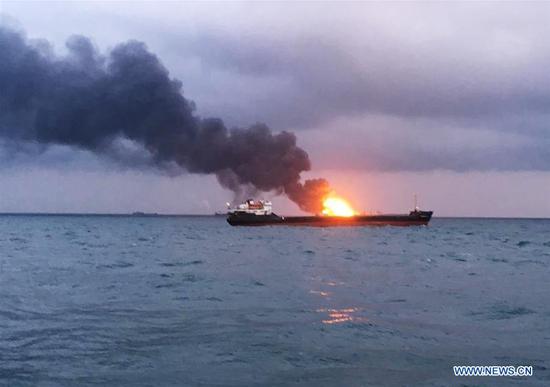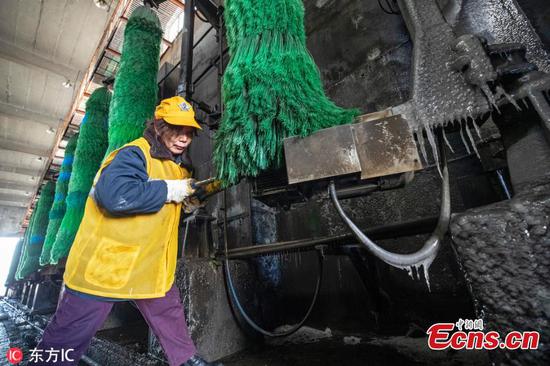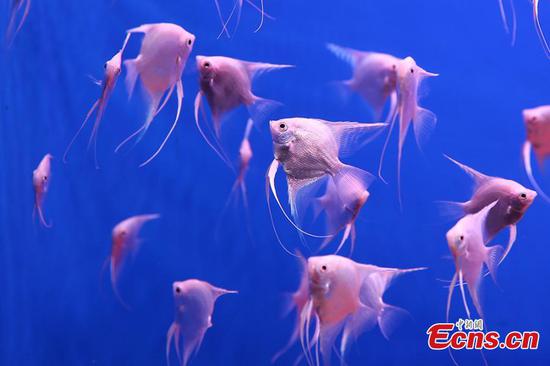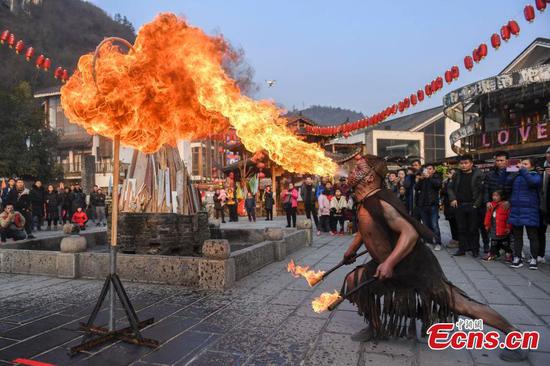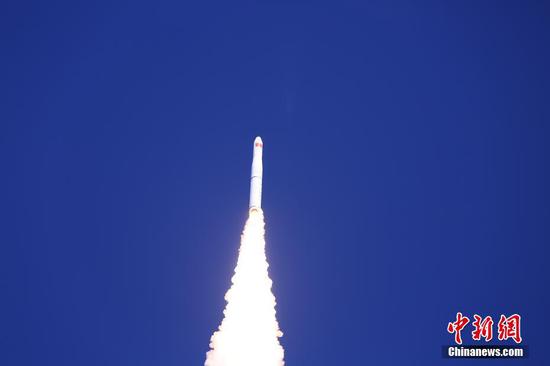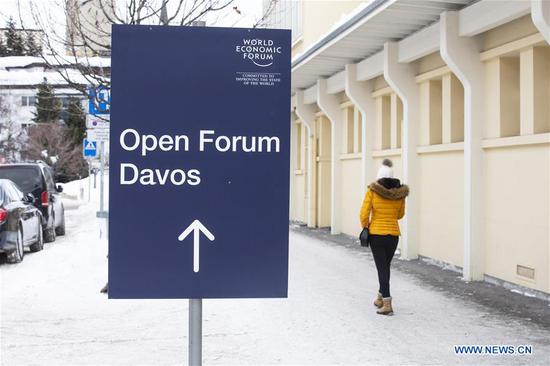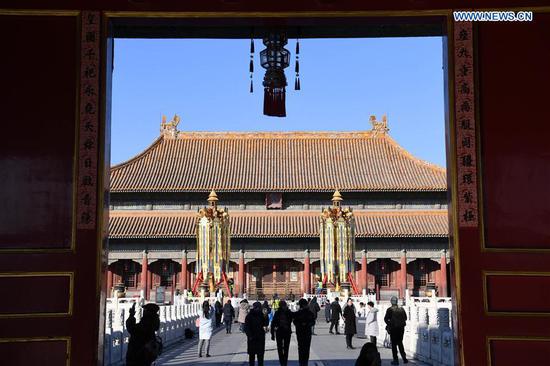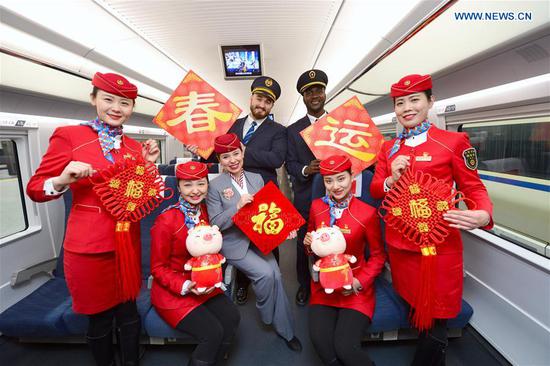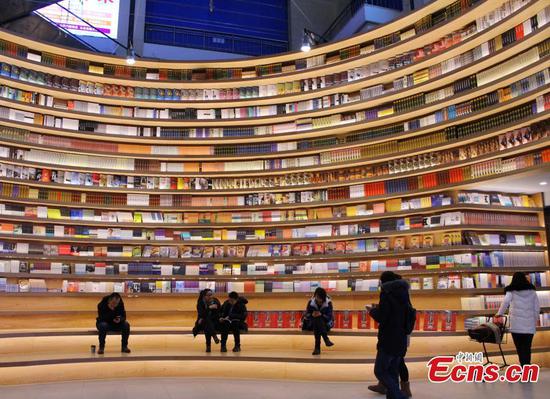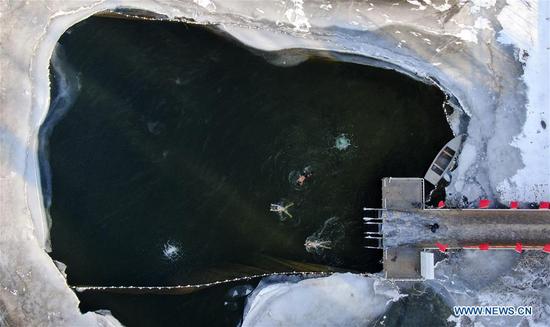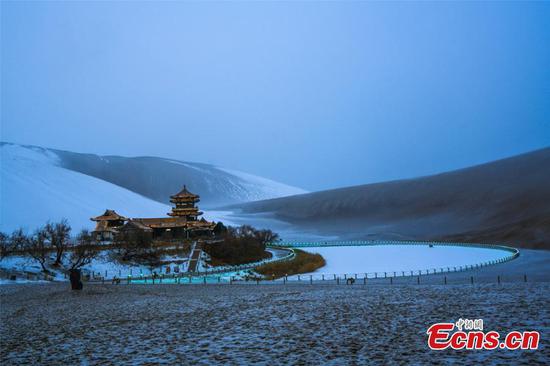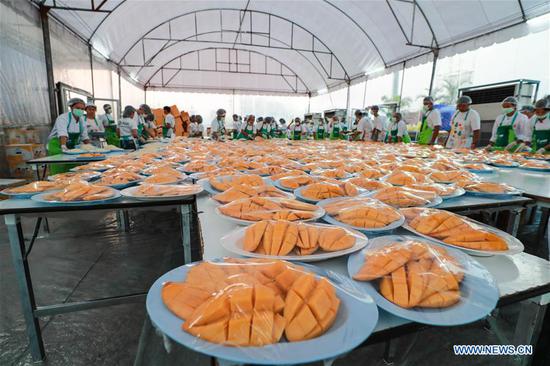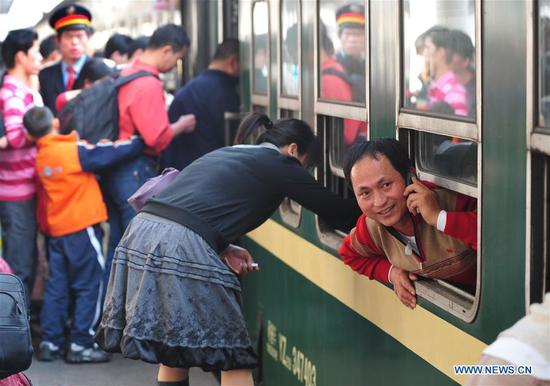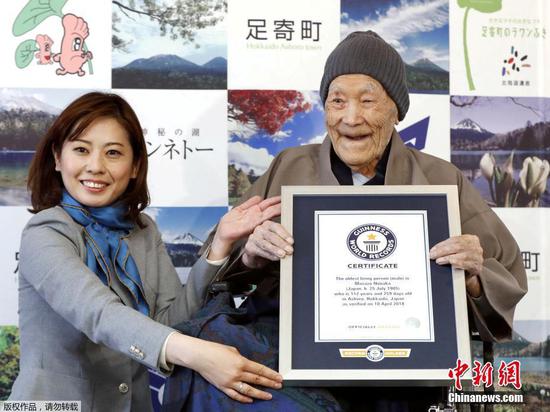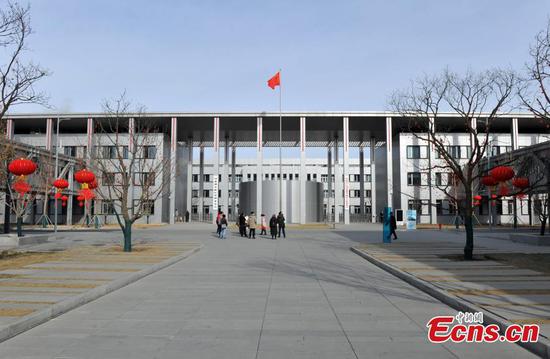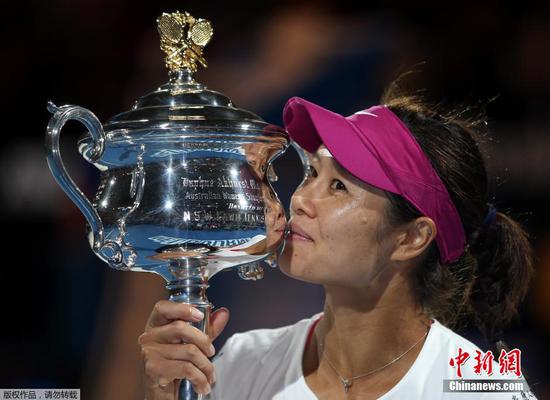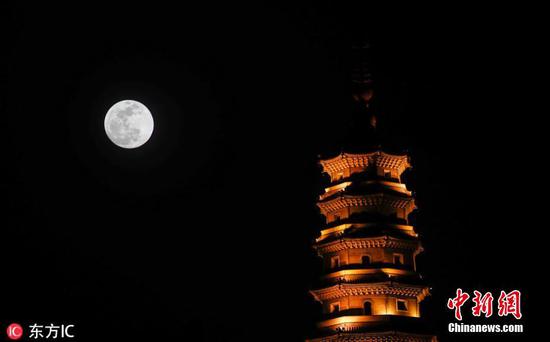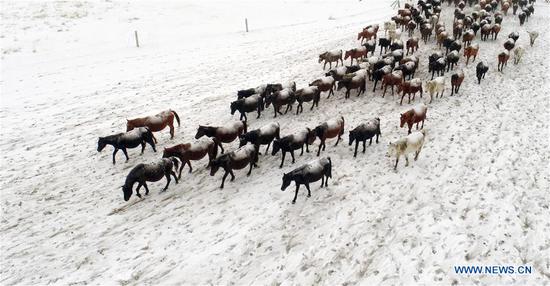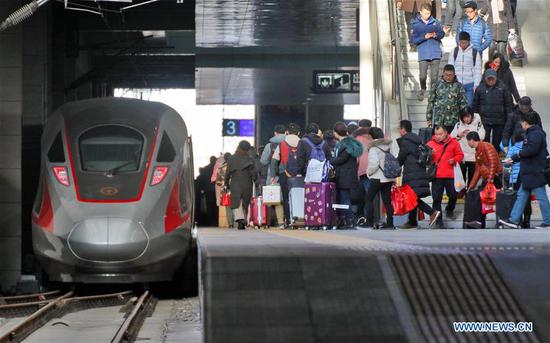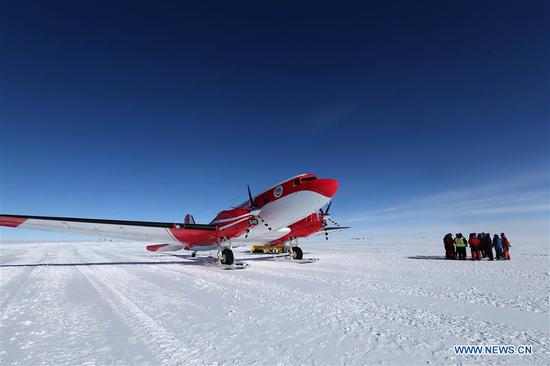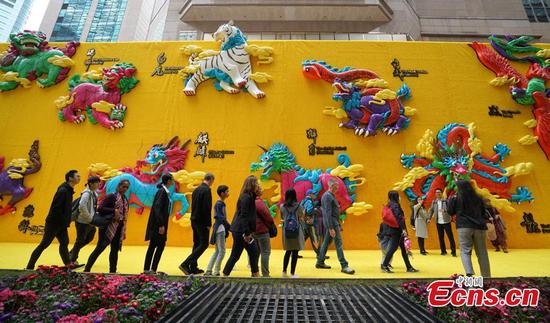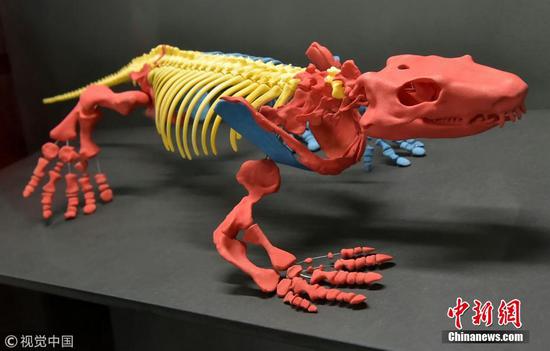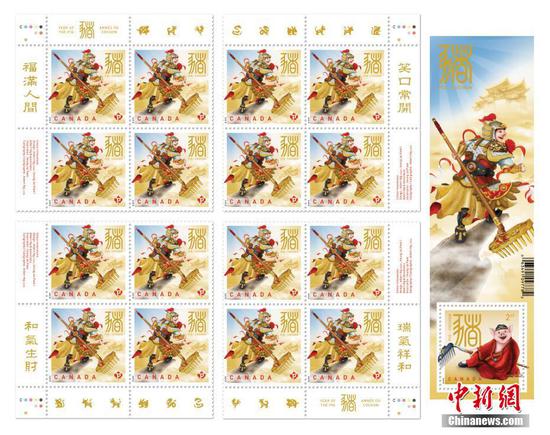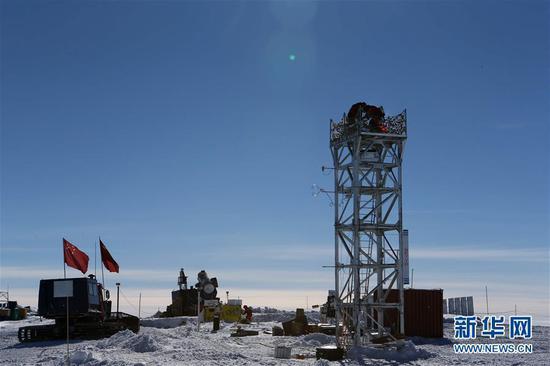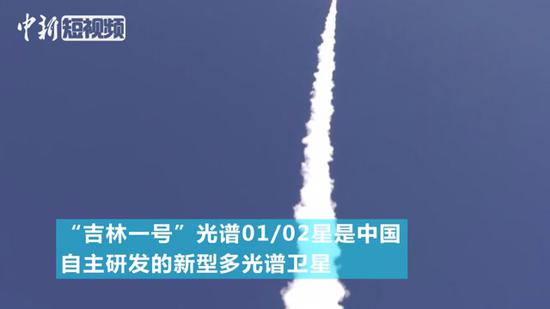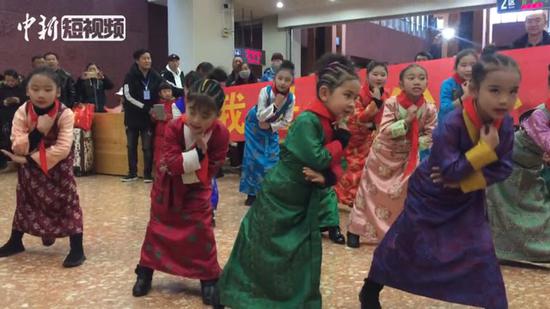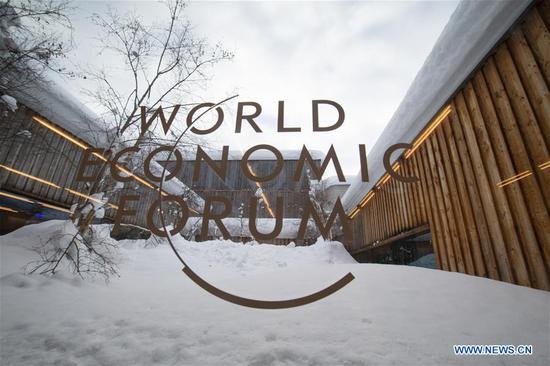
Photo taken on Jan. 21, 2019 shows the logo of the World Economic Forum (WEF) in Davos, Switzerland. The WEF Annual Meeting will kick off in Davos on Tuesday. (Xinhua/Xu Jinquan)
Throughout human memory, the bandwagon of economic globalization has generally been rumbling forward, bringing people across the world ever r for enormous shared benefits, whether it is powered by animals or algorithms, combustion engines or computers.
Yet a prevailing historical trend does not guarantee a trouble-free journey. Rather, economic globalization has experienced many twists and turns.
Ninety years ago, Herbert Hoover won the White House by promising higher tariffs to protect America's farmers in a world clouded by trade protectionist practices. Ten months into his presidency, the Great Depression struck. The Smoot-Hawley Tariff Act Hoover signed the next year prolonged the financial meltdown, further fueled protectionism worldwide and exponentially deflated global trade. Economic globalization suffered a severe setback.
Nine decades later, globalization has reached another crossroads, with economists worldwide expecting a new round of global economic recession, if not a repeat of the 1929 crash.
Against this backdrop, the 2019 World Economic Forum (WEF) annual meeting opens on Tuesday under the theme "Globalization 4.0: Shaping a Global Architecture in the Age of the Fourth Industrial Revolution."
The topic indicates the need for business titans and policy makers from around the globe gathering in the snowy Swiss resort of Davos to reflect on the troubling status quo of globalization and brainstorm its future course.
When Chinese President Xi Jinping spoke at the WEF in Davos two years ago, he talked about "a world of contradictions," and warned against protectionism and trade wars.
In the following two years, trade protectionism, economic nationalism, and populism have reared their heads. The rules-based multilateral economic system with the World Trade Organization (WTO) at its center is under an unprecedented assault. Globalization seems to be losing its steam.
So the great question of this age is why so many around the world, particularly those in the West, have felt betrayed by the elites of their own countries as globalization chugs forward.
One key reason is that while global trade has created a lot of human wealth, many Western countries have failed to fairly distribute the dividends among their citizens. As a result, the wealth gap has been widening year by year. The boisterous Yellow Vest protests demanding lower taxes, higher household incomes and better public service on the streets of Paris over the recent weeks are just the tip of the populist iceberg of discontent in the wealthy West.
Also, the growing prevalence of social media has made it possible and more convenient for people from all walks of life to express their grievances openly and form new identity groups along racial or religious divides. That rise of identity politics has further promoted populism, fractured societies, and made it increasingly difficult for Western politicians to push through necessary domestic social reforms.
To win elections, those poll politicians have become more prone to pandering to the populist demagoguery, and accustomed to trying to shift blame for the domestic problems overseas. They claim that the economic emergence of the developing countries has been the result of abusing the global trade playbook and taking advantage of globalization at the expense of the West.
The fact is that ever since the end of the Cold War, the emerging economies have achieved their economic development by adapting to the global trade rules virtually written by the West, opening up their markets and integrating themselves into the global economy.
China once had its doubts about economic globalization but it made a historical choice to ride the unpreventable tide and opened up to the outside world at the end of the 1970s. After 40 years of reform and opening-up, China has now become the world's second-largest economy with a total trade volume of import and export goods of over 3 trillion U.S. dollars.
"We have had our fair share of choking in the water and encountered whirlpools and choppy waves, but we have learned how to swim in this process. It has proved to be a right strategic choice," Xi told the Davos forum participants two years ago.
In dealing with the problems brought by globalization, China has not lost its domestic focus. Beijing understands that while it is important to expand the economic pie, it is even more imperative to undertake domestic reforms and ensure a fair distribution.
That is the very reason why China has worked so diligently in reducing poverty and went ahead with broader and bolder reforms. In April last year, Xi announced at the Boao Forum for Asia in China's Hainan Province a wide range of reform measures, including significantly cutting tariffs, broadening market access, creating a more attractive investment environment, strengthening the protection of intellectual property rights and expanding imports.
By holding the first China International Import Expo (CIIE) in Shanghai late last year and allowing foreign firms to have wholly-owned subsidiaries in more sectors, China has proved it would always honor what it has promised.
At such a critical juncture for the global community, choosing the right course for economic globalization will have significant and far-reaching implications for the world's future.
Just as Xi said at Davos: "Whether you like it or not, the global economy is the big ocean that you cannot escape from."
Globalization can never be perfect. It destroys and builds at the same time no matter how it evolves. The globalization 4.0 that this year's WEF focuses on is no exception.
The only question that matters now is how the nations of the world choose to act so that they can better harness the forces of globalization for the good of all. Remember, backpedaling should never be an option.









